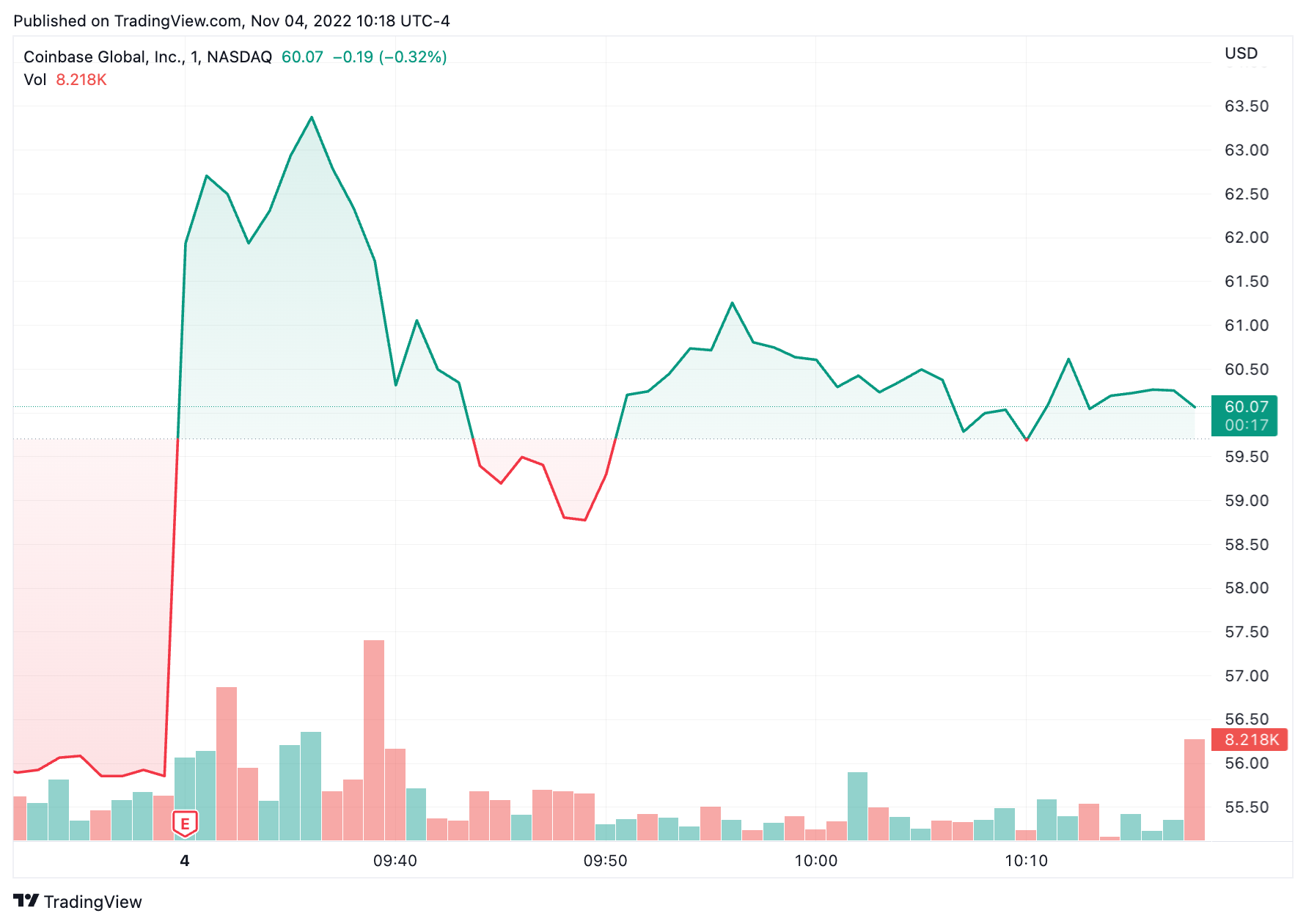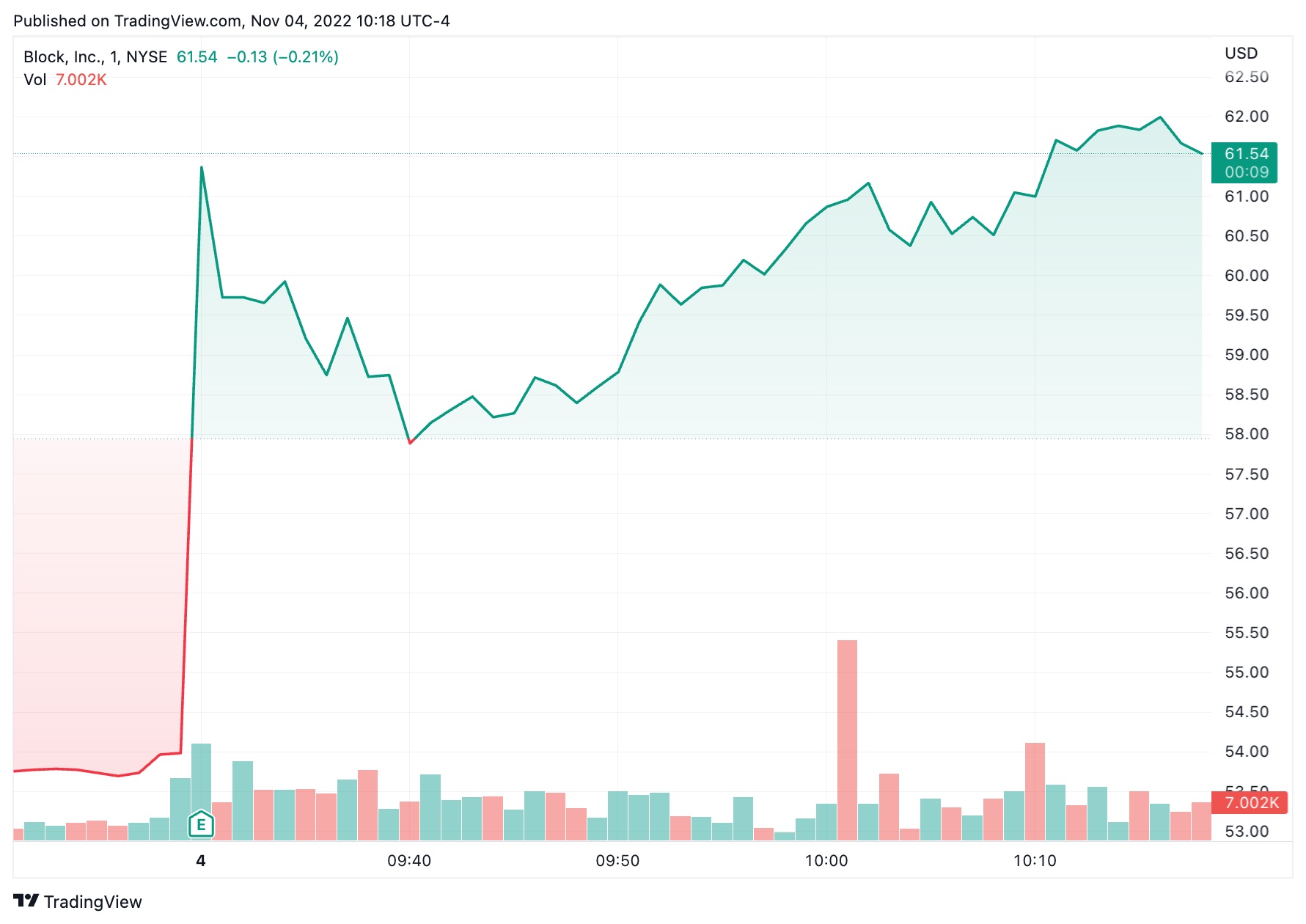Bitcoin miners take center stage on the earnings calendar next week, but bankruptcy is what is weighing on the minds of investors and analysts alike.
That’s what happens when one of the highest-profile companies in the space says it’s running out of money. Core Scientific, the biggest miner by computing power, warned last week that it may miss debt payments and take drastic steps to stay alive.
“The focus is ‘show me that we’re not going to get surprised like we did with Core Scientific,'” said Brian Dobson, an analyst at Chardan Capital Markets.
That surprise sent Core Scientific’s stock, already down 90% from March highs, firmly into penny stock territory. On Monday, Argo also said it is at risk of becoming cashflow negative after a financing deal fell through. Compute North, meanwhile, beat them both in the race to the bottom and filed for bankruptcy last month.
Many miners pursued lofty expansion plans during the headier days of the bull market, taking on large amounts of debt to finance machines and infrastructure to keep up with the global network growth. Then bitcoin prices plummeted from an all-time high last November, energy prices shot up and mining difficulty increased, pressuring margins and leading companies to the precipice.
“A lot of the companies that are going to not make it are the ones that put in big, big [hardware purchase] contracts last year when prices were peaking and now have little ability to get out of those contracts,” said Christopher Brendler, a senior research analyst with D.A. Davidson. “The only reason why some companies are better positioned is because they have either fixed-price or low-cost power.”
The bad
Dobson sees Core Scientific’s filing as a “black eye” for the industry because of how quickly everything unraveled. D.A. Davidson recently downgraded the stock to neutral, citing growing concerns over details disclosed in the bankruptcy court filings of an even higher-profile crypto crash: Celsius. Its mining unit was Core Scientific’s hosting client.
D.A. Davidson also downgraded Argo to neutral over a lack of fixed power purchase agreements, a contract between electricity generators and buyers.
“The problem is in order to get a PPA, you’ve got to have a balance sheet … to commit to an energy provider for a long term” Brendler said. “They could get a fixed price PPA, but they need to recap first. They need more equity.”
Investors will be primarily watching for the health of balance sheets but “likely gross mining margin will join it soon as some of the higher cost operators lose the ability to generate cash from their operations based on efficiency of mining equipment and cost of power,” said Ethan Vera, COO of bitcoin infrastructure company Luxor Technologies.
Already declining profit margins are seeing even more pressure as the global hashrate spikes, resulting in greater mining difficulty. Vera said that hashprice — revenue miners earn from a unit of hashrate over a specific timeframe — traded down 34% in the third quarter compared to the previous one.
“With many miners already showing signs of weakness in Q2 we expect a few more to fall in negative gross margin territory,” he said. “This issue is exacerbated by few miners locking in fixed PPA electricity agreements, and suffering from higher costs.”
The good
One miner making strides in the bear market is CleanSpark, which has been buying up thousands of discounted mining machines, as well as two mining sites. The company has been particularly smart about its capital and is now reaping the benefits of not joining the rush to buy machines last year, Brendler said.
“That’s another proof point that it’s really more about balance sheets and having the flexibility to take advantage of these times rather than being the biggest and the best,” Brendler said. “Even someone small like CleanSpark can not only survive, but they can thrive in this crypto winter.”
On Tuesday, CleanSpark announced the purchase of another 3,843 latest-generation machines — the exact same number that Argo said it sold the day before.
CleanSpark isn’t the only minder in good shape. Riot Blockchain, Marathon Digital and BitFarms were all mentioned positively by analysts in the run-up to results.
Brendler expects a “very strong quarter” from Riot as it avoided higher electricity costs and profited from selling power back to the grid in Texas. He maintained his buy rating on Riot as well as Marathon, which he said benefited from “low-cost power, funded growth plans, and ample liquidity to capitalize on the impending shakeout.”
“Marathon is the most intriguing because their biggest hosting provider, Computing North, filed bankruptcy during the quarter. And yet, if you look at their pool, they’re still mining and doing quite well,” Brendler said.
Still, “investors are going to be very cautious heading into the earnings season, where it’s crucial for Marathon and CleanSpark to convey to the street their strong financial footing,” Luxor’s Vera said.
H.C. Wainwright & Co analysts singled out Marathon, CleanSpark and Bitfarms, noting that they have added “robustly” to their own hashrate and are more strongly positioned to weather the impact” of the crypto winter.
A zero-sum game
Some companies will come out from this sluggish period stronger, with possible mergers and acquisitions picking up.
Argo’s Peter Wall said in September that he anticipated seeing more asset sales than classic M&A deals, also arguing that the industry would likely hit a “pain point” high in the fourth quarter.
Bankruptcy court filings this week showed that Compute North is selling two mining facilities for $5 million to one of its lenders.
Iris Energy said last month that it was looking at potential mergers and acquisitions opportunities after a fresh capital raise of $100 million in September. On Wednesday, the company announced that it might default on some of its loans and is currently in talks with lenders.
Brendler pointed out that it’s a “zero-sum” game, where one miner exiting the business can benefit the rest.
“In some industries [when] the weaker companies start having trouble, they fail, it’s a warning sign to the rest of the industry. I don’t think that’s the case necessarily here,” Brendler said. “We’ll continue to see consolidation, continue to see a shake-out. And I would not be surprised to see the network hashrate start going down.”
Brendler believes that both Core Scientific and Argo are “most likely” going to have to file for Chapter 11 bankruptcy protection to restructure their debt and avoid harsher consequences. If they do go into bankruptcy, that could either be an orderly restructuring or a liquidation, but Dobson sees the latter as the less likely scenario.
A series of lending funds have emerged recently targeting distressed miners. Collectively, Binance, Icebreaker and Bitdeer’s Jihan Wu said they would make over $1 billion dollars available to miners.
“It indicates that there’s still a lot of interest in this space and this industry is not going away,” Brendler said.
© 2022 The Block Crypto, Inc. All Rights Reserved. This article is provided for informational purposes only. It is not offered or intended to be used as legal, tax, investment, financial, or other advice.


